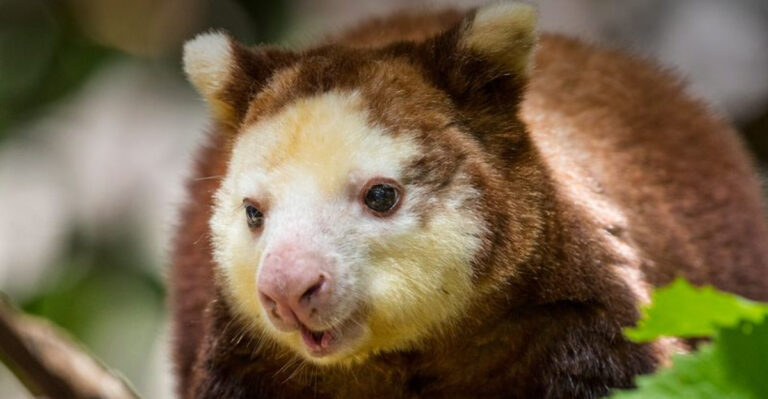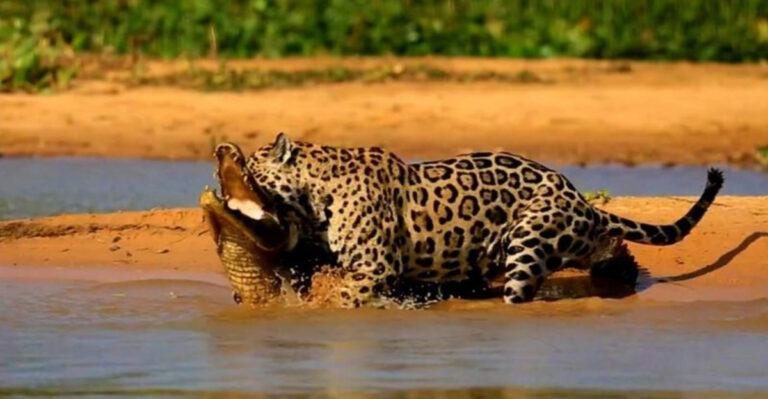7 Surprising Foods That Are Safe For Cats & 7 That Could Harm Them
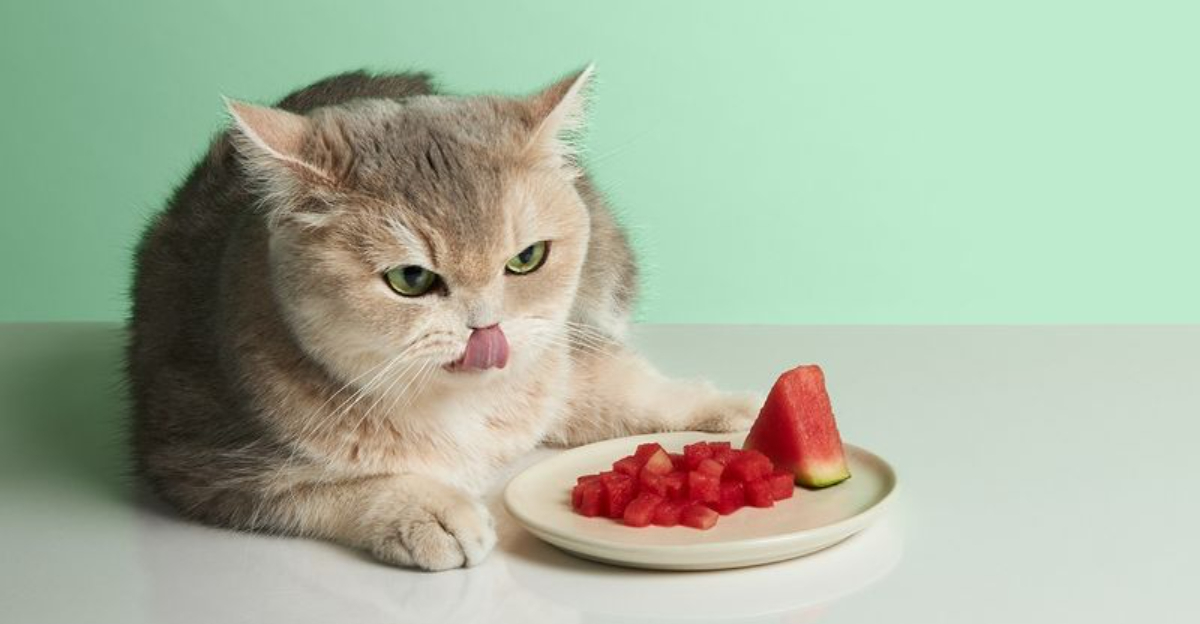
Ever caught your feline friend eyeing your dinner plate with those pleading eyes? As cat owners, we often wonder which human foods might make a safe occasional treat and which could send us rushing to the vet.
While cats thrive best on specialized pet food, understanding which human foods are safe or dangerous can help prevent accidental poisoning and maybe even provide a rare bonding moment over a shared snack.
1. Cooked Eggs – A Protein Powerhouse
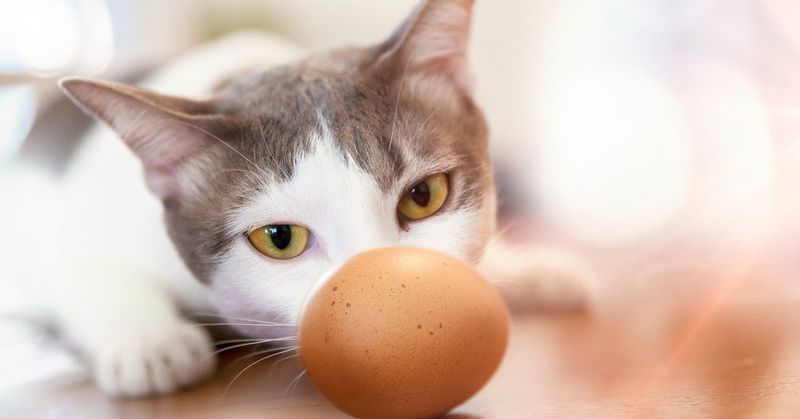
Scrambled, boiled, or poached – properly cooked eggs offer cats a digestible protein boost that’s packed with amino acids and B vitamins. The key word here is ‘cooked’ – raw eggs pose salmonella risks.
Serve them plain without salt, butter, or seasonings. Just a small spoonful makes a perfect occasional treat that your kitty might find egg-cellent!
2. Plain Yogurt – Probiotic Benefits
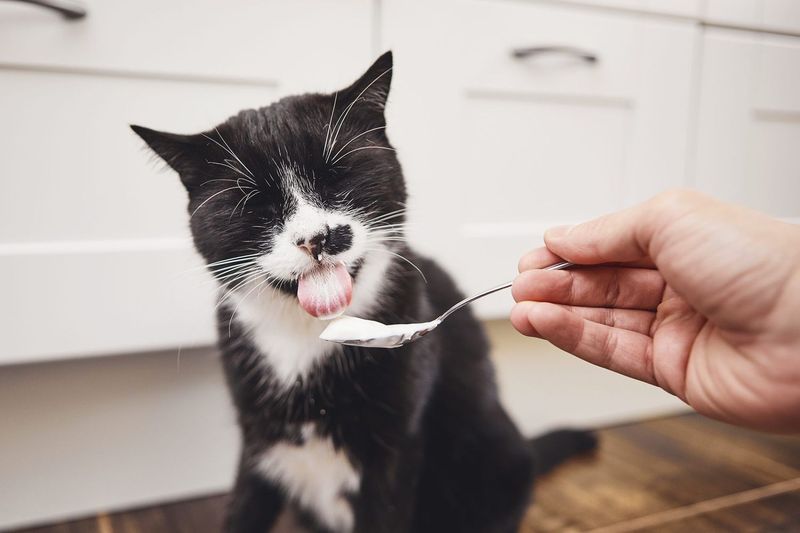
Contrary to the myth that all dairy is bad, many cats can handle small amounts of plain yogurt without digestive issues. The live cultures provide beneficial probiotics that support gut health.
Look for unsweetened, unflavored varieties without artificial additives. A teaspoon occasionally might help cats with sensitive tummies, though some felines remain lactose intolerant.
3. Cooked Fish – Omega-Rich Treat
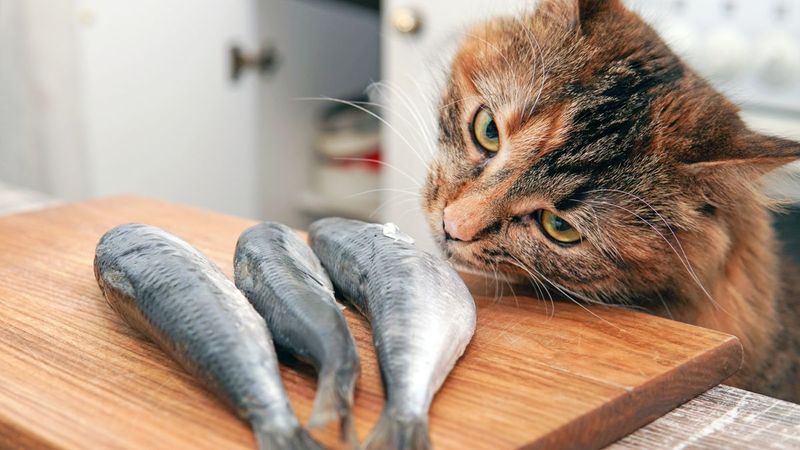
Those cartoon depictions of cats loving fish aren’t just artistic license! Fully cooked salmon, tuna, or mackerel (without bones) provides omega-3 fatty acids that support joint health and reduce inflammation.
Always serve fish plain – no oil, salt, or seasoning. Limit treats to once weekly to avoid mercury concerns and vitamin E deficiencies from too much fish oil.
4. Lean Meats – Carnivore’s Delight
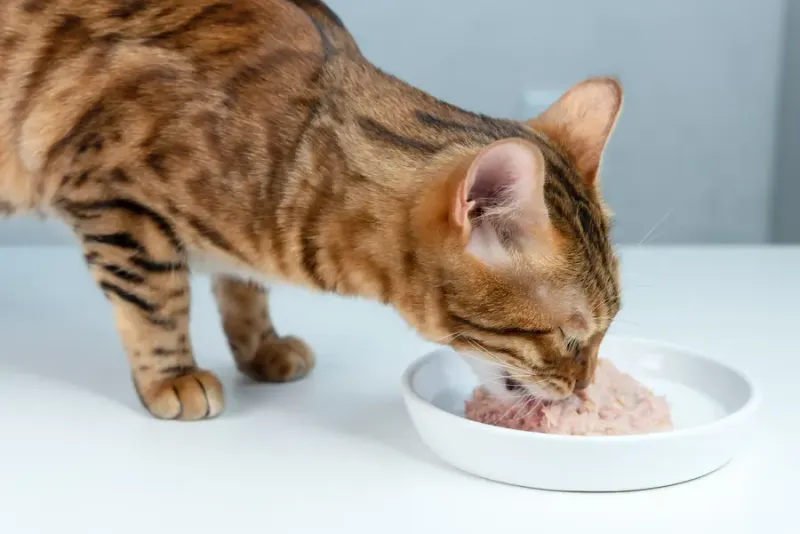
Small bits of cooked chicken, turkey, or beef align perfectly with your cat’s natural carnivorous diet. These protein sources contain taurine, an essential amino acid cats need for heart and eye health.
Always serve these meats well-cooked without skin, bones, or seasoning. Cut into tiny, manageable pieces to prevent choking hazards while satisfying their predatory instincts.
5. Pumpkin Puree – Digestion Helper
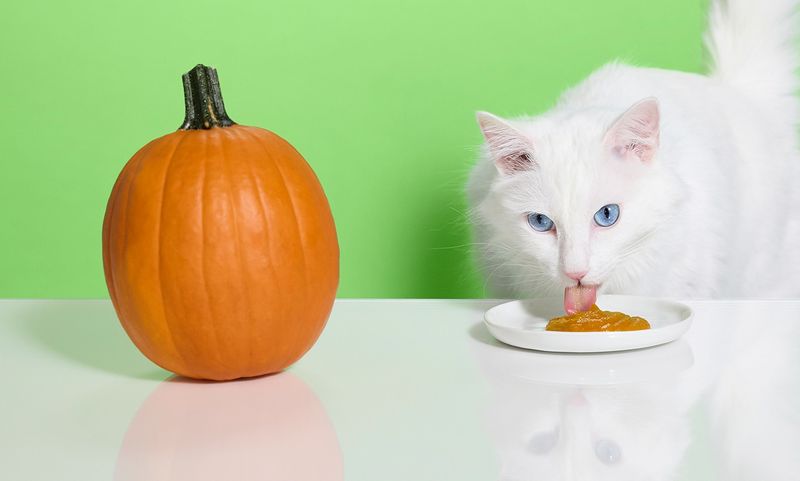
Pure pumpkin (not pie filling!) works wonders for cats with constipation or diarrhea. The fiber helps regulate digestion in both directions, making it a natural remedy veterinarians often recommend.
A teaspoon mixed into regular food can soothe upset tummies. The beta-carotene also supports eye health and immune function, creating a surprisingly beneficial orange addition to kitty’s diet.
6. Watermelon – Hydrating Nibble
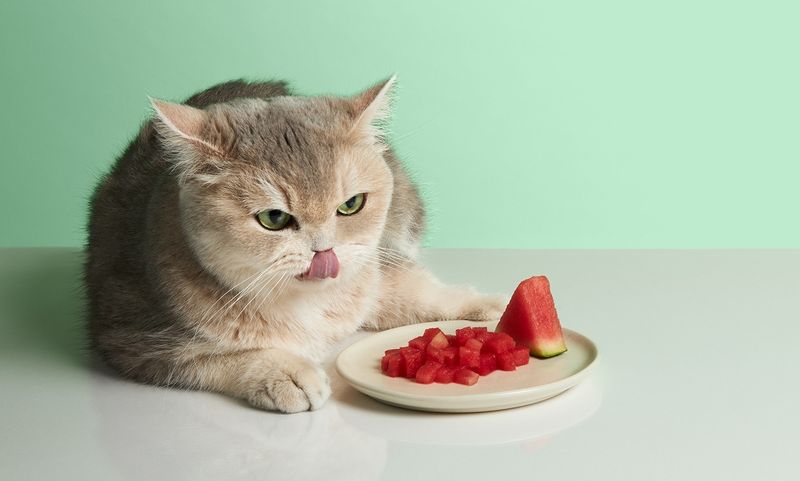
During hot summer days, a few seeds-removed watermelon chunks can help keep your kitty hydrated. The high water content makes this fruit a refreshing treat that some cats surprisingly enjoy.
Remember to remove all seeds and rind before offering. Keep portions tiny – a couple of small cubes is plenty since cats don’t need fruit sugars in their diet regularly.
7. Cooked Carrots – Vision Boosters
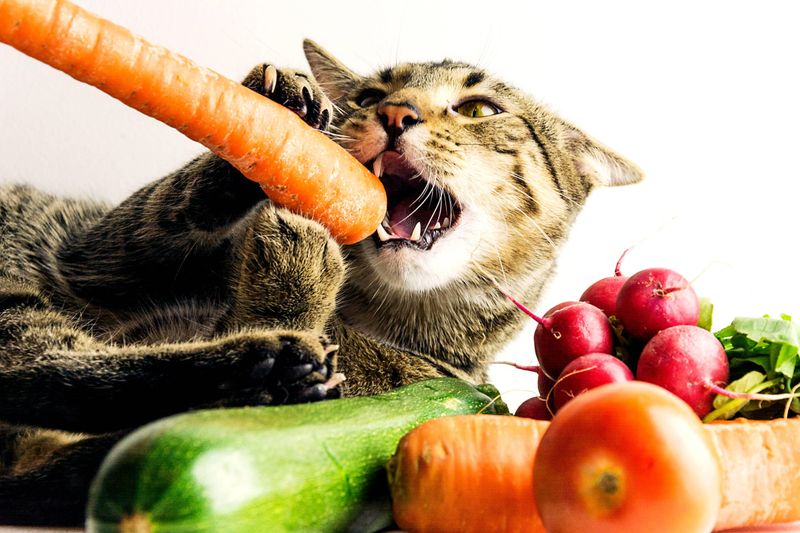
Steamed until soft, carrots offer beta-carotene that supports feline eye health. While not all cats will go for vegetables, some curious kitties enjoy the slightly sweet taste and interesting texture.
Mash them well for easier digestion since cats lack the enzymes to break down plant cell walls efficiently. A half-teaspoon mixed with regular food makes for a nutritious addition without overloading their primarily carnivorous system.
8. Chocolate – Fatal Temptation
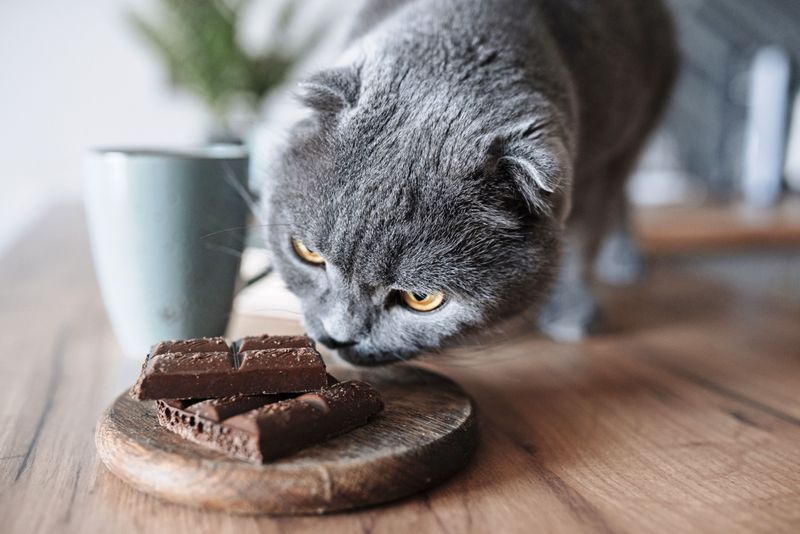
That delicious chocolate bar could be a death sentence for your feline friend. Theobromine and caffeine in chocolate can cause vomiting, diarrhea, rapid breathing, and even fatal heart issues in cats.
Darker chocolates contain higher concentrations of these toxins, making them even more dangerous. Keep all cocoa products securely stored away from curious paws, and seek emergency care immediately if ingestion occurs.
9. Onions & Garlic – Hidden Dangers
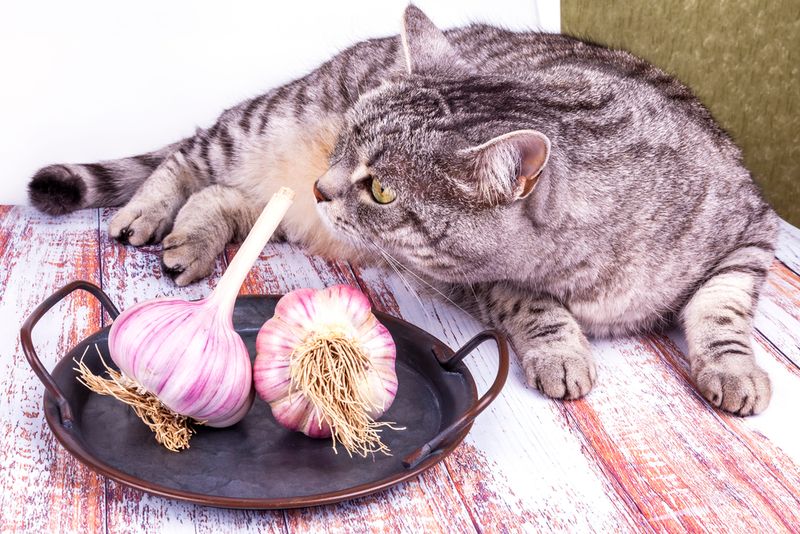
Found in countless human dishes, onions and garlic destroy cats’ red blood cells, leading to anemia. Even small amounts – whether raw, cooked, powdered, or in sauces – can cause serious health issues.
Watch for symptoms like weakness, vomiting, and breathlessness. Many commercial human foods contain these ingredients, so always check labels before sharing food with your feline companion.
10. Grapes & Raisins – Mysterious Toxins
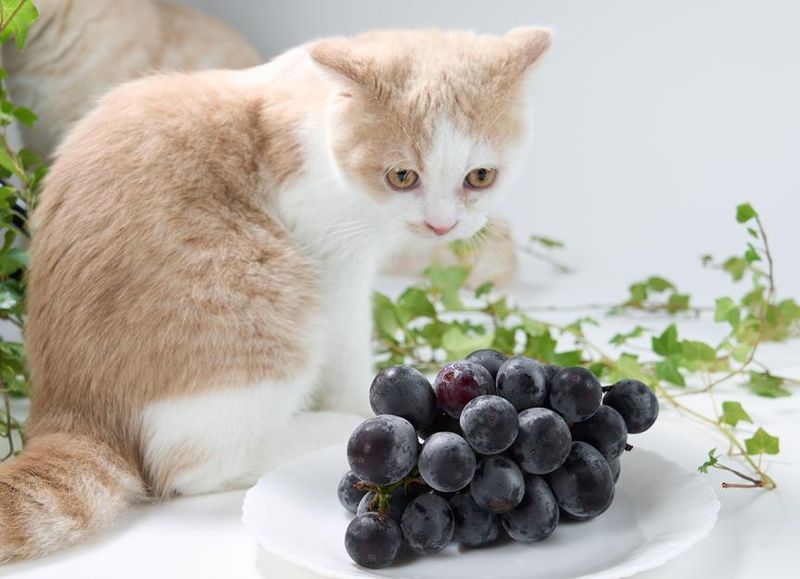
Science hasn’t pinpointed exactly why, but grapes and raisins can cause sudden kidney failure in cats. Even a single grape might trigger vomiting, lethargy, and decreased urination – all signs of kidney damage.
The toxic reaction varies between individual cats, making these fruits completely off-limits. Keep fruit bowls out of paw’s reach and be especially careful with baked goods containing raisins.
11. Alcohol – Never Funny
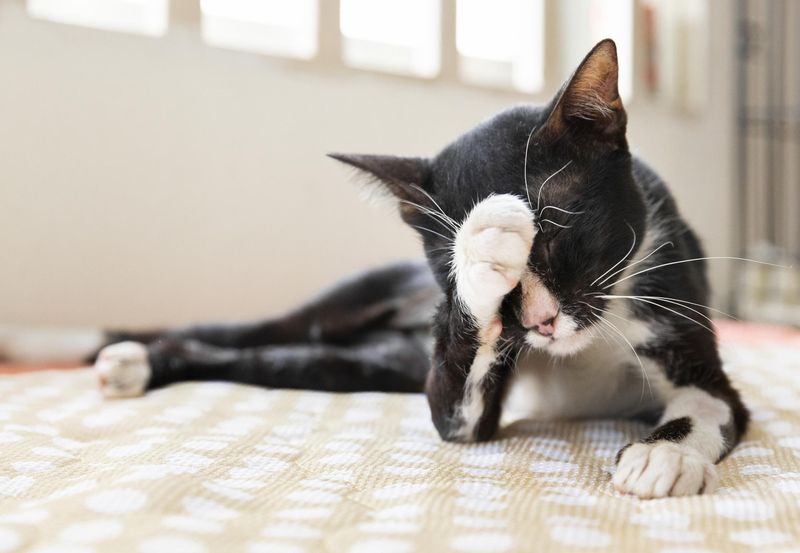
What might give humans a pleasant buzz can be catastrophic for cats. Their small bodies metabolize alcohol poorly, leading to dangerous drops in blood sugar, body temperature, and blood pressure.
Even a few laps from an unattended drink can cause severe intoxication. Never leave alcoholic beverages unattended, and seek immediate veterinary care if your cat consumes any amount of alcohol.
12. Raw Dough – Rising Danger
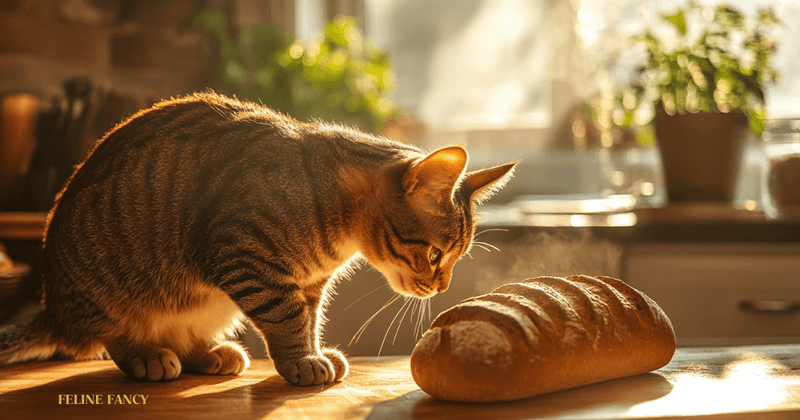
Bread dough containing yeast poses a double threat to curious cats. First, it can expand in the warm, moist environment of the stomach, causing painful bloating and potential rupture.
Second, fermenting yeast produces alcohol, leading to the same dangers as alcoholic beverages. Keep unbaked dough out of reach and contact your vet immediately if your cat manages to sneak a bite.
13. Xylitol – Sweet Poison
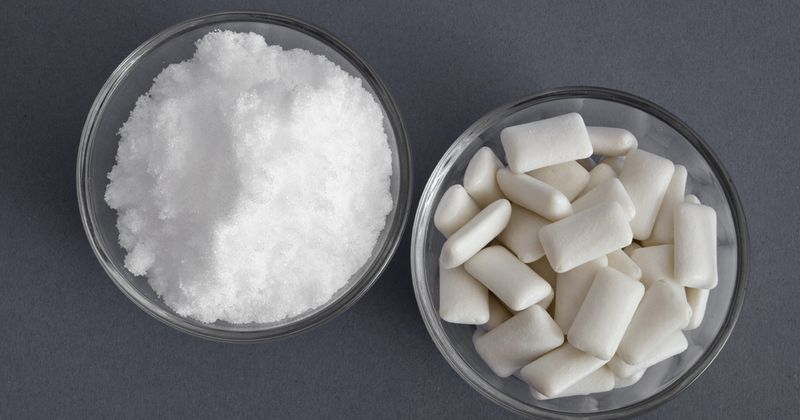
This sugar substitute lurking in sugar-free candies, gum, and some peanut butters causes rapid insulin release in cats. The resulting blood sugar crash can lead to seizures, liver failure, and death within hours.
Always check ingredient labels, especially on “sugar-free” products. Keep purses containing gum or mints secured away from inquisitive paws that might find these sweet-smelling items irresistible.
14. Caffeine – Stimulant Overdrive
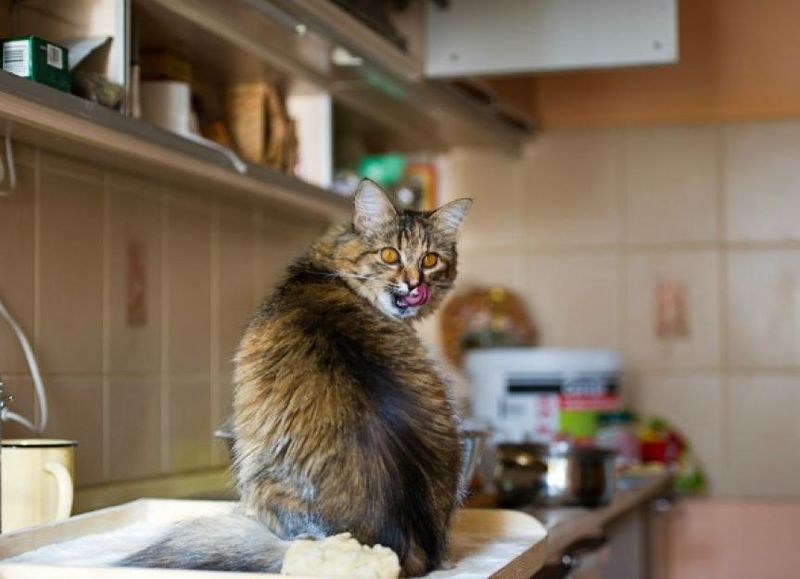
Coffee grounds, tea bags, and energy drinks contain methylxanthines that overstimulate cats’ nervous and cardiac systems. Even small amounts can cause hyperactivity, tremors, abnormal heart rhythm, and seizures.
Dispose of used coffee grounds securely and keep beverages covered. The attractive smell might tempt curious cats, but their bodies cannot handle these powerful stimulants that we humans consume daily.

